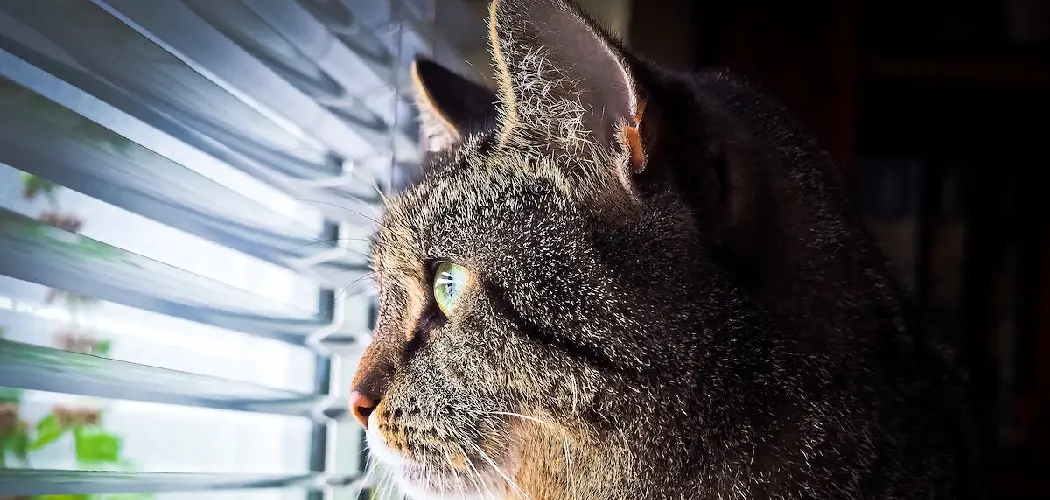If you’re a cat owner, you know that cats have a knack for getting into places they aren’t supposed to be. This can be especially true when it comes to your garage. Cats are often drawn to garages, whether the scent of something exciting or curiosity.
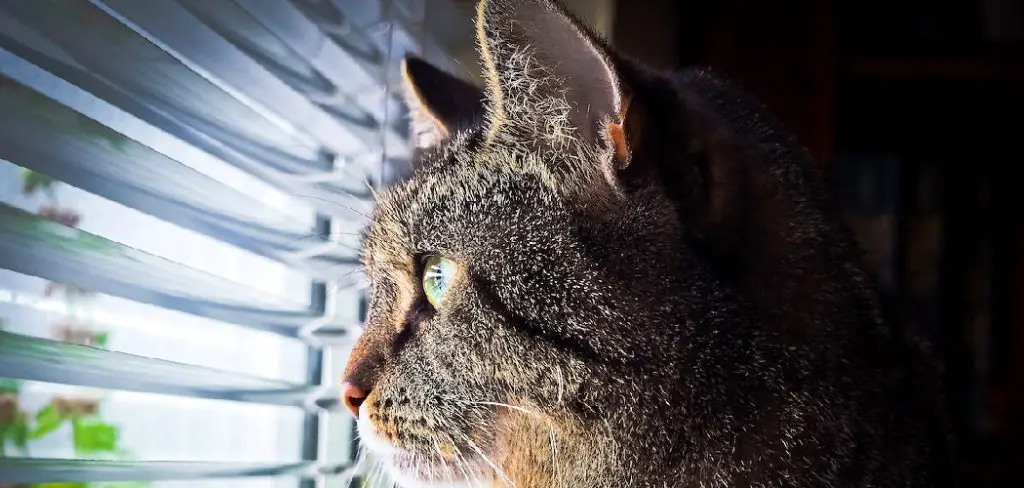
Thankfully, there are a few ways you can take to keep your cats out of your garage and safely inside the house where they belong. So keep reading to learn more about how to keep cats out of garage.
Summary: Building swing-out garage doors can be a great way to add convenience and security to your home. Swing-out garage doors, also known as hinged carriage doors, provide an easy and secure way to open and close the garage. These types of garage doors typically open outward so that you can open the door with a simple push of a button.
Can You Keep Cats Out Of Garage?
Keeping your cats out of the garage can prove to be quite a challenging task. After all, cats are curious and love to explore their environment – garages can provide the perfect opportunity for them to do just that!
Fortunately, there are several things you can do to keep cats away from your garage. Start by ensuring that any doors leading from the house into the garage remain closed at all times.
Additionally, you could purchase or build a cat-proof fence around your garage in order to create an additional deterrent. Finally, many pet products on the market help deter cats, such as motion sensors and noise makers. With a few simple strategies and creative problem-solving, it is possible to keep your cats out of the garage successfully!
Why Should You Keep Cats out Of the Garage?
Keeping cats out of the garage is an important task for pet owners. A garage may be filled with various items that can attract a curious cat, such as toxic chemicals, power tools, and other sharp objects. Cats have claws and sharp teeth that could cause serious damage to stored items or even themselves if they get into trouble.
Furthermore, the fumes from motor vehicles can easily overwhelm a cat’s sensitive sense of smell, creating a risk of carbon monoxide poisoning. Finally, many homeowners use their garages for storage of dry goods or food such as grains and nuts – both favorite snacks for cats – which can attract them inside in droves.
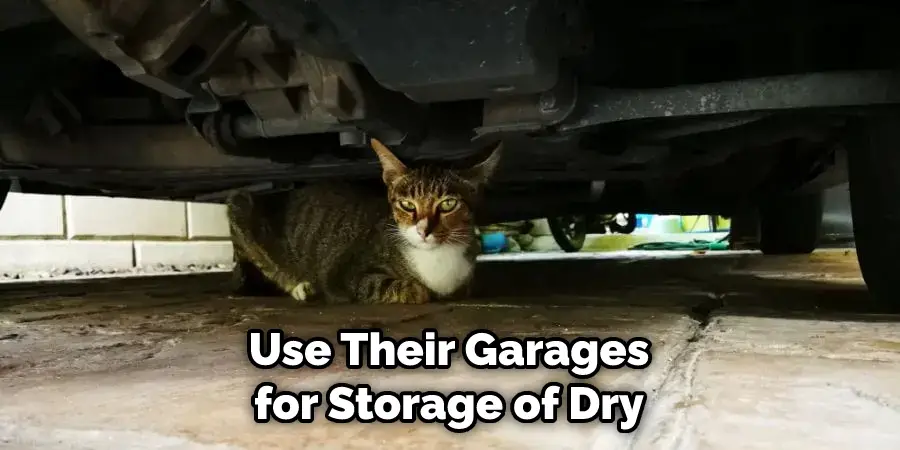
Taking preventative measures to keep cats away from the garage is fundamental to all pet owners who want their furry friends to remain healthy and safe.
12 Steps to Follow on How to Keep Cats out Of Garage
Step 1: Eliminate Food Sources
Cats are often attracted to garages in search of food. To discourage them from entering your garage, remove any potential food sources:
- Keep trash cans tightly sealed and inaccessible to cats.
- Store pet food in airtight containers and avoid leaving food out in the open.
- Clean up any spills or crumbs that may attract cats or the rodents they hunt.
Step 2: Remove Shelter and Hiding Spots
Cats may seek shelter in garages to escape the elements or to find a safe place to hide. Eliminate potential hiding spots and make the area less appealing:
- Organize and declutter your garage, removing items that could provide hiding spots for cats.
- Seal off any small spaces or openings where cats might hide or nest.
- Keep your garage door closed when not in use to prevent cats from entering.
Step 3: Install Deterrent Devices
Install devices designed to deter cats from entering your garage:
- Install motion-activated lights, which can scare cats away when they approach the garage.
- Use ultrasonic cat repellent devices, which emit high-frequency sounds that are uncomfortable for cats but inaudible to humans.
- Install a motion-activated sprinkler system to startle and deter cats from entering your property.
Step 4: Use Repellent Scents
Cats have a strong sense of smell and are deterred by specific scents. Use these natural repellents to keep cats away from your garage:
- Sprinkle coffee grounds, orange peels, or lemon peels around the perimeter of your garage, as cats dislike the smell of citrus and coffee.
- Mix a solution of equal parts water and white vinegar, and spray it around the garage’s entrance and areas where cats have been spotted. The smell of vinegar is unpleasant to cats and will deter them from returning.
- Plant cat-repellent plants such as lavender, rosemary, or rue around your garage. Cats dislike the smell of these plants and will avoid the area.
Step 5: Secure the Garage Door and Windows
Ensure that your garage door and windows are well-secured to prevent cats from entering:
- Repair any gaps or damage to the garage door and ensure it closes tightly.
- Install weather stripping or a garage door seal to close any gaps between the door and the ground.
- Keep windows closed or install window screens to prevent cats from entering through open windows.
Step 6: Use Humane Traps
If you’re still having trouble with cats entering your garage, consider using humane live traps to catch and relocate them:
- Set up a live trap in the garage or near the entrance, baited with food that cats find appealing, such as canned tuna or sardines.
- Check the trap frequently to avoid causing unnecessary stress to the trapped cat.
- Once a cat is trapped, relocate it to a safe location away from your property, or contact your local animal control or rescue organization for assistance.
Step 7: Spay and Neuter Community Cats
If stray or feral cats are the primary issue, work with your local animal welfare organizations to implement a trap-neuter-return (TNR) program:
- Contact your local animal shelter or rescue organization for assistance with TNR programs.
- Volunteer to help trap, neuter, and return cats in your neighborhood, which can help control the population and reduce the likelihood of cats entering your garage.
Step 8: Educate Your Neighbors
Encourage your neighbors to take similar steps to keep cats out of garages and other unwanted areas:
- Share information about cat deterrents and repellent methods.
- Collaborate on community efforts to spay and neuter stray or feral cats.
- Promote responsible pet ownership, encouraging neighbors to keep their cats indoors or
supervised while outdoors.
Step 9: Provide Alternative Areas for Cats
If you or your neighbors have outdoor cats, consider providing them with alternative shelter and enrichment options:
- Build or purchase outdoor cat enclosures or “catios” that allow cats to enjoy the outdoors while remaining confined to a specific area.
- Provide designated areas with shelter, food, and water for community cats, located away from garages and other unwanted areas.
- Install outdoor cat perches, scratching posts, or toys to encourage cats to stay in designated areas.
Step 10: Implement Routine Monitoring and Maintenance
Regularly check your garage and surrounding areas for signs of cat activity:
- Monitor your garage for signs of cat entry or damage.
- Regularly reapply repellent scents and maintain deterrent devices to ensure their effectiveness.
- Communicate with neighbors to stay informed about local cat activity and share information about successful deterrent methods.
Step 11: Remain Patient and Persistent
Keeping cats out of your garage may require ongoing effort and adaptation:
- Be prepared to try multiple deterrent methods and adjust your approach based on what works best for your specific situation.
- Recognize that some methods may take time to show results, and remain patient and persistent in your efforts.
Step 12: Consider Consulting a Professional
If you continue to have trouble keeping cats out of your garage despite your efforts, consider consulting a professional animal control or wildlife removal specialist:
- Contact a local professional who specializes in humane animal control and removal for advice and assistance.
- Work with the specialist to develop a customized plan to address your specific cat-related concerns.
By following these steps, you can effectively keep cats out of your garage and maintain a clean, secure, and cat-free environment. Regular monitoring, maintenance, and communication with neighbors can help ensure the ongoing success of your efforts. Remember to always use humane methods when dealing with cats and work with local animal welfare organizations when necessary to address stray or feral cat populations.
Things You Need to Know Before Keeping Cats out Of Garage
Cats can be great companions to have, but keeping them in the garage has its own set of special considerations. Firstly, you’ll need to provide insulation for your furry friend so that their temperature remains regulated both in the winter and summer months.
Furthermore, you’ll need to ensure plenty of ventilation, as cats are sensitive and can experience respiratory issues if stuck in a stuffy room. Additionally, providing comfy places to sleep, such as different levels of perches and scratching posts, can help keep your pet comfortable in its new environment.
Finally, don’t forget to give them access to food and water at all times; also, make sure any hazardous chemicals or materials stay out of reach or locked up when not in use. With these few simple tips, your cat will love having a permanent residence right at home in your garage!
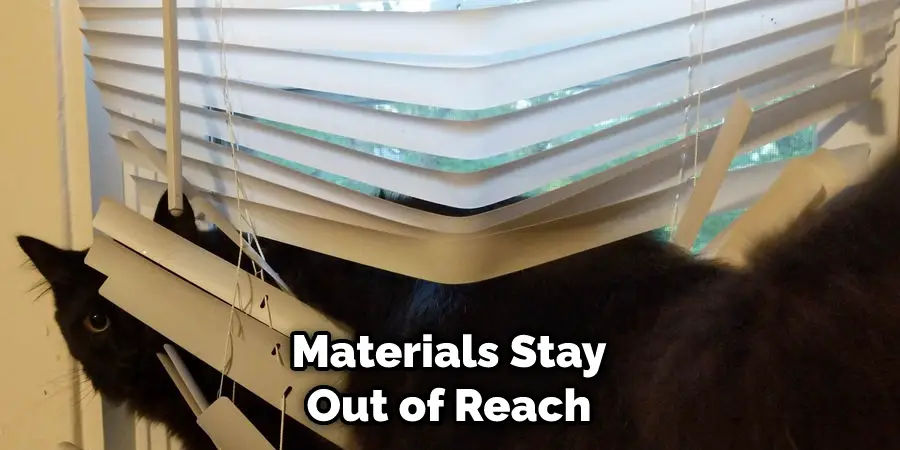
Benefits of Keeping Cats out Of Garage
Keeping cats out of the garage can provide many benefits, from keeping any valuables in the area safe from cat-related damage to reducing clutter due to cat hair accumulation. In addition, this can also help reduce potential disputes between neighbors if a cat that does not belong to either one is continually found lurking in the garage.
Keeping cats away from your garage also lowers the risk of transporting possible infectious parasites or materials onto the property that may have been carried in from other yards or locations.
Ultimately, keeping cats out of garages allows for a safer environment for both the animal and humans alike, as well as preserving property for long-term useful applications.
6 Common Mistakes People Make When Trying to Keeping Cats out Of Garage
1. Not Blocking the Cat’s Access to The Garage.
One of the most common mistakes people make when trying to keep cats out of their garage is not blocking the cat’s access to the garage. If a cat can easily get into the garage, it will likely continue to do so. To keep cats out, you must block all potential entry points, including doors and windows.
2. Not Using a Repellent.
Another common mistake is not using a repellent. A repellent is a substance that helps to keep cats away from an area. Many different types of repellents are available, including those that emit a loud noise or spray a mist of water. Repellents can be effective in keeping cats out of your garage if they are used correctly.
3. Not Keeping the Garage Clean.
Another mistake people make is not keeping the garage clean. Cats are attracted to cluttered and dirty areas, so it’s important to keep your garage clean and free of debris. This will make it less appealing to cats and help deter them from entering.
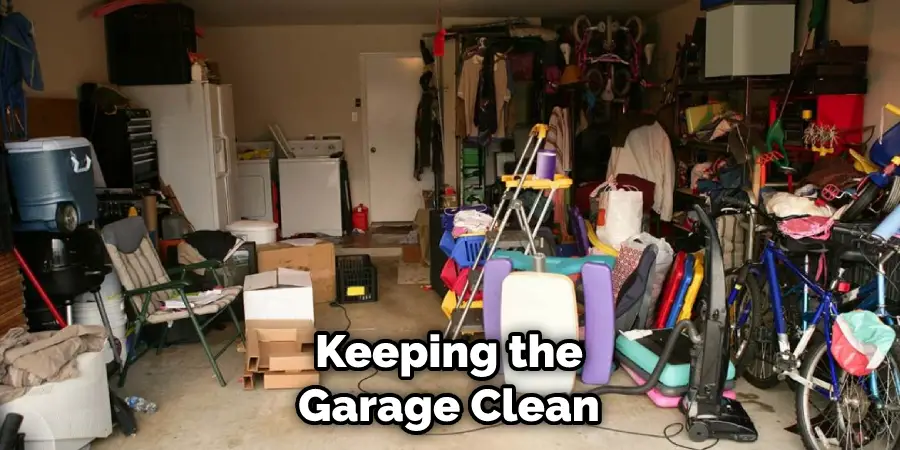
4. Leaving Food or Other Attractants in The Garage.
Leaving food or other attractants in the garage is another common mistake people make when trying to keep cats out. Cats are attracted to food and often enter a garage searching for a meal. To keep cats out, be sure to remove all food and other attractants from the area.
5. Not Using Proper Fencing.
If you have an outdoor cat, using proper fencing around your property is important to help keep other cats out. A fence can provide a physical barrier that will deter cats from entering your yard and approaching your home.
6. Not Seeking Professional Help.
Not seeking professional help is another mistake people often make when trying to keep cats out of their garages. If you have difficulty keeping cats out, you may want to seek help from a professional animal control company. These companies can provide additional tips and strategies for keeping cats away from your property.
Conclusion
Keeping cats out of the garage doesn’t have to be difficult – it just requires some simple steps! Start by ensuring all doors and windows are securely closed before moving onto additional deterrents like motion detector lights, aluminum foil, or double-sided tape.
With these tips in mind, you can easily keep your furry friends away from the garage without worrying about them getting in trouble! Thanks for reading our post about how to keep cats out of garage.
I am Rick. I grew up helping my dad with his handyman service. I learned a lot from him about how to fix things, and also about how to work hard and take care of business. These days, I’m still into fixing things- only now, I’m doing it for a living.
I’m always looking for new ways to help people grow and develop. That’s why I have created this blog to share all my experience and knowledge so
that I can help people who are interested in DIY repair.

